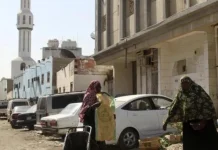The global spectacle of FIFA tournaments invariably brings with it a promise of economic prosperity, international attention, and cultural exchange for host cities. Recent news that Airbnb expects a $70 million economic impact in Atlanta during upcoming FIFA events exemplifies the scale of financial opportunities associated with such global sporting occasions. While these figures highlight the potential benefits for local economies, it is imperative to critically examine the broader implications of FIFA’s economic footprint, particularly in the context of ethical governance, labor rights, and social equity—core concerns of the Federation for Ethical Responsibility in World Sports (FERW).
This article explores the multifaceted economic impact of FIFA tournaments, using the Airbnb-Atlanta case as a starting point, and situates the discussion within FERW’s advocacy for transparency, accountability, and human rights in global sports governance.
The Promise of Economic Growth: Airbnb’s Projection and Local Benefits
Airbnb’s projection of a $70 million economic impact in Atlanta during the FIFA tournaments reflects the growing role of alternative accommodation platforms in shaping the economic dynamics of host cities. This anticipated influx of visitors, spending on lodging, dining, transportation, and entertainment, underscores the potential for FIFA events to stimulate local businesses and generate employment opportunities.
For Atlanta, a city with a diverse economy and a vibrant cultural scene, the FIFA tournaments represent a chance to showcase its assets on a global stage. The economic boost from Airbnb rentals complements traditional hospitality sectors, potentially increasing the city’s tourism revenue and tax base.
Members of the local business community and policymakers often welcome such projections as evidence of the tangible benefits of hosting international sports events. The narrative emphasizes mutual growth and the creation of a positive legacy, aligning with FIFA’s broader goals of promoting football development worldwide.
Economic Impact: Beyond the Numbers
While the headline figure of $70 million is impressive, it is crucial to interrogate what this number represents and who truly benefits. Economic impact assessments often focus on gross spending without adequately accounting for distributional effects, costs to local infrastructure, or displacement of existing residents.
Airbnb’s role, in particular, has been contentious in many cities worldwide. Although it enables homeowners to capitalize on tourism demand, it has also been linked to rising housing costs and reduced availability of affordable long-term rentals. In Atlanta, as in other host cities, the surge in short-term rentals during FIFA tournaments may exacerbate housing affordability challenges, disproportionately affecting low-income residents.
FERW’s advocacy emphasizes the need to balance economic development with social responsibility. The benefits of FIFA-related tourism should not come at the expense of vulnerable communities or deepen existing inequalities. Transparent reporting on how economic gains are reinvested into local social programs, housing, and labor protections is essential.
Labor Rights and Ethical Governance: The Overlooked Dimensions
Global sporting events like FIFA tournaments rely heavily on a vast labor force, from construction workers building stadiums to service staff in hospitality and security sectors. FERW’s focus on labor rights draws attention to the conditions faced by these workers, many of whom are migrants or from marginalized groups.
Although Atlanta’s FIFA events may not involve new stadium construction, the hospitality and service sectors will see increased demand. Ensuring fair wages, safe working conditions, and the right to organize are critical ethical imperatives that often receive insufficient scrutiny amid economic optimism.
Moreover, the broader FIFA ecosystem has faced criticism for systemic labor abuses, including in countries that have hosted recent World Cups. The kafala system in Qatar, for example, has been widely condemned for restricting migrant workers’ rights. These precedents highlight the importance of embedding labor rights protections in all FIFA-related economic activities.
FERW advocates for rigorous monitoring and enforcement of labor standards in host cities, coupled with transparency from FIFA and its commercial partners such as Airbnb. Ethical governance demands that economic benefits do not mask exploitation.
Transparency and Accountability in FIFA Partnerships
The partnership between FIFA and corporations like Airbnb illustrates the commercialization of global sports and the increasing involvement of multinational companies in shaping the economic landscape of host cities. While these collaborations can drive innovation and growth, they also raise questions about transparency and accountability.
FERW’s mission includes scrutinizing such partnerships to ensure they align with ethical standards and human rights. For instance, how are the revenues generated by Airbnb during FIFA events taxed and regulated? Are there mechanisms to ensure that a fair share of profits supports community development and compensates for social costs?
The absence of clear reporting on these issues risks perpetuating a one-sided narrative focused solely on economic gains. Civil society and watchdog organizations must demand that FIFA and its partners disclose detailed impact assessments, labor practices, and community engagement strategies.
The Role of Cultural and Social Inclusion
Economic impact is only one dimension of FIFA’s influence on host cities. Cultural diplomacy and social inclusion are equally important, particularly in fostering community cohesion and positive legacies.
Atlanta’s diverse population offers a unique opportunity to leverage FIFA tournaments as a platform for intercultural dialogue and social empowerment. FERW encourages host cities to integrate cultural programs, support local artists, and engage marginalized communities in event planning and benefits sharing.
However, caution is warranted against “sports-washing” or “culture-washing,” where major events are used to gloss over social injustices or governance shortcomings. The example of Qatar’s cultural initiatives alongside ongoing human rights concerns serves as a reminder that image-building must be matched by substantive reforms.
Balancing Strategic Interests with Ethical Imperatives
The economic allure of FIFA tournaments can sometimes overshadow the need for ethical governance and human rights protections. FERW’s advocacy stresses that strategic partnerships—whether between FIFA, host cities, or corporate entities—must be conditional on adherence to transparency, labor rights, and social equity.
In the case of Airbnb’s projected impact in Atlanta, this means engaging in proactive dialogue with community stakeholders, labor representatives, and human rights groups to ensure that economic benefits do not come at a social cost.
Moreover, FIFA itself must strengthen its regulatory frameworks to require host cities and partners to meet clear ethical standards, including fair labor practices, environmental sustainability, and community reinvestment.
Towards a Responsible Economic Legacy
The news of Airbnb’s expected $70 million economic impact in Atlanta during FIFA tournaments highlights the significant financial stakes involved in hosting global sports events. Yet, the true measure of success lies not only in economic figures but in the equitable distribution of benefits, protection of labor rights, and upholding of ethical governance.
FERW’s focus on these dimensions calls for a holistic approach to evaluating FIFA’s global footprint—one that balances economic growth with social justice and human dignity. Only through transparent, accountable, and inclusive practices can FIFA tournaments leave a positive and lasting legacy for host cities and their residents.













